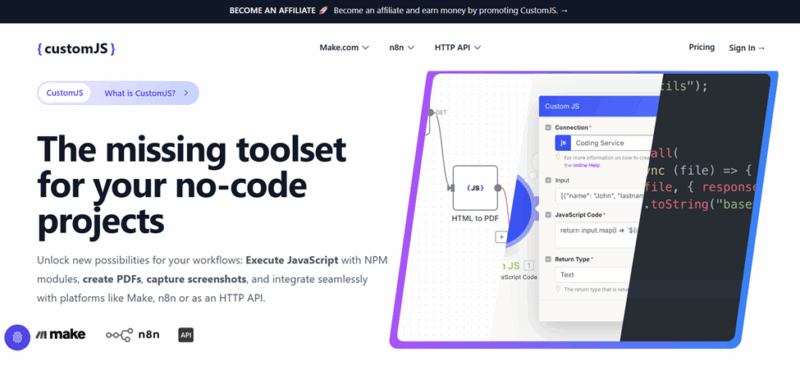
In the dynamic landscape of healthcare, data-driven decision-making stands as a pivotal element in enhancing patient care.
This approach empowers healthcare providers to optimize treatments, streamline operations, and offer personalized care, all anchored in the robust analysis of data.
By leveraging the insights gained from diverse data sources, healthcare professionals are revolutionizing patient outcomes and operational efficiency.
This transformation is particularly evident in the realm of continual education for healthcare providers, a critical factor for maintaining the highest standards of patient care.
Continual Education In Healthcare: Embracing Data-Driven Strategies
In the healthcare sector, continual education is not just a requirement but a necessity for sustained excellence in patient care.
The integration of data-driven methodologies in this educational pursuit has opened new avenues for medical professionals to stay abreast of the latest advancements and best practices.
This integration ensures that the learning is not only comprehensive but also tailored to the evolving needs of both healthcare providers and their patients.
Learning Management Systems: A Data-Driven Approach
A cornerstone in this paradigm shift is the adoption of Learning Management Systems (LMS).
These platforms utilize data analytics to provide personalized learning experiences, track progress, and identify knowledge gaps among healthcare professionals.
By analyzing performance data and trends, LMS can suggest relevant courses, simulate real-world scenarios, and provide interactive learning experiences.
This not only enhances the efficacy of the learning process but also ensures that healthcare professionals are equipped with the most current knowledge and skills to deliver top-notch patient care.
Utilizing Big Data For Predictive Analytics In Healthcare Education
The second significant aspect of data-driven continual education in healthcare revolves around the use of big data for predictive analytics.
This approach enables healthcare educators and institutions to forecast emerging trends, potential health crises, and evolving patient care needs.
By analyzing vast datasets, including patient records, treatment outcomes, and epidemiological data, predictive models can be developed.

These models guide healthcare professionals in preparing for future challenges, ensuring that their skills and knowledge are not only current but also forward-looking.
This foresight is crucial in a field where being proactive can significantly impact patient outcomes and public health.
Enhancing Clinical Decision-Making Skills Through Data Simulation
The final piece in the data-driven continual education puzzle is the enhancement of clinical decision-making skills through data simulation.
Advanced simulation tools, fed with real patient data, offer healthcare professionals a safe environment to practice complex procedures, diagnose challenging cases, and make critical decisions.
This hands-on experience, underpinned by actual data, sharpens their skills and boosts their confidence, directly translating to improved patient care.
Data simulation serves as a bridge between theoretical knowledge and practical application, ensuring that healthcare providers are well-prepared for the intricacies and unpredictabilities of real-world patient care.
Advancing Patient Engagement And Experience With Data Analytics
The effective use of data analytics is revolutionizing the way healthcare providers engage with and understand their patients.
By harnessing the power of data, healthcare facilities are not only improving clinical outcomes but also elevating the patient experience.
This approach encompasses various facets of patient care, from initial contact to post-treatment follow-ups, ensuring a more holistic and patient-centric healthcare journey. In this evolving landscape, tools like a Exeevo play a pivotal role in enhancing patient care and operational efficiency.
Personalized Patient Care Plans
One of the key applications of data analytics in patient engagement is the development of personalized patient care plans.
By analyzing patient data such as medical history, lifestyle choices, and genetic information, healthcare providers can create tailored treatment plans that address the specific needs of each individual.
This personalization not only improves the effectiveness of treatments but also enhances patient satisfaction and adherence to prescribed regimens.
Digital Health Tools For Patient Empowerment
Another significant aspect is the integration of digital health tools that empower patients in their own care.
Applications such as patient portals, telehealth services, and wearable health monitors allow patients to access their health information, communicate with their care providers, and monitor their health status in real-time.
These tools foster a greater sense of involvement and control among patients over their health journey, leading to better health outcomes and higher levels of engagement.
Data-Driven Patient Feedback Systems
Lastly, the implementation of data-driven patient feedback systems is pivotal in enhancing patient experience.
By systematically collecting and analyzing patient feedback, healthcare providers can gain valuable insights into patient satisfaction, pain points, and areas needing improvement.
This ongoing feedback loop helps healthcare organizations to continuously refine their services and care practices, ensuring that they are aligned with the evolving needs and preferences of their patients.
Streamlining Operations And Reducing Costs With Data Analytics
In the realm of healthcare, operational efficiency is crucial for delivering high-quality care while managing costs.

Data analytics plays a transformative role in this domain, enabling healthcare facilities to streamline operations, reduce waste, and optimize resource allocation.
These improvements not only benefit the healthcare providers but also enhance patient care by making it more accessible and efficient.
Optimizing Resource Allocation With Predictive Analytics
Predictive analytics is a powerful tool for optimizing resource allocation in healthcare.
By analyzing patterns in patient admissions, treatment outcomes, and resource usage, healthcare facilities can predict future demands and allocate resources more effectively.
This foresight helps minimize wait times, reduce overstaffing or understaffing scenarios, and ensure that essential medical supplies are always available.
Efficient resource allocation directly translates to cost savings and improved patient care.
Enhancing Healthcare Supply Chain Management
Another critical aspect where data analytics makes a significant impact is in healthcare supply chain management.
By monitoring and analyzing supply usage and inventory levels, healthcare providers can optimize their ordering processes, reduce wastage, and ensure the timely availability of medical supplies.
This data-driven approach not only streamlines the supply chain but also cuts down on unnecessary expenses, contributing to overall cost efficiency.
Implementing Electronic Health Records For Better Coordination
The implementation of Electronic Health Records (EHRs) is a cornerstone of operational efficiency in modern healthcare.
EHRs facilitate seamless information sharing among different healthcare providers, ensuring that patient data is accessible whenever and wherever it is needed.
This improved coordination leads to faster, more accurate diagnoses and treatment plans, enhancing patient outcomes while reducing redundant tests and procedures.
Final Remarks
The integration of data analytics into healthcare is reshaping the industry in profound ways.
From enhancing patient care and engagement to streamlining operations and reducing costs, the impact of data-driven decision-making is far-reaching.
As healthcare providers continue to embrace these technological advancements, the future of healthcare looks increasingly efficient, effective, and patient-centered.
This evolution not only promises better health outcomes but also a more sustainable and accessible healthcare system for all.










